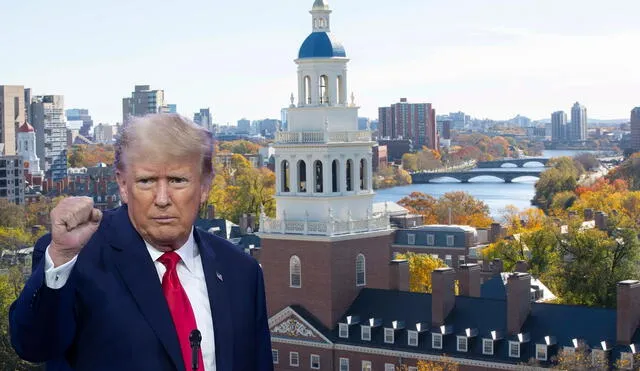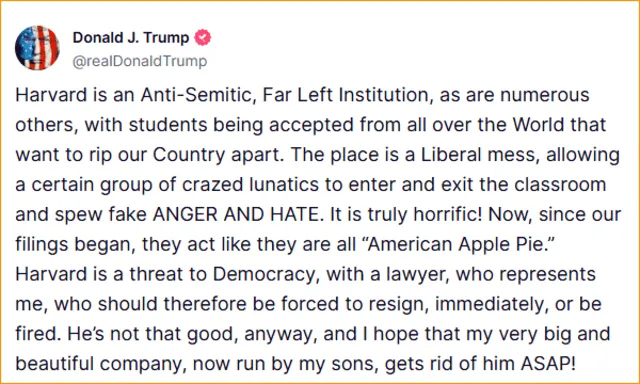Trump accuses Harvard of antisemitism amid Federal funding cuts
Amid federal funding cuts and rising political tensions, Trump’s accusation of antisemitism against Harvard sparks a high-stakes clash over free speech, academic independence, and the future of U.S. higher education.

President Donald Trump publicly accused Harvard University of promoting antisemitism and called it a threat to American democracy. The former president’s comments came after months of growing tension between his administration and top academic institutions. Trump specifically criticized what he saw as a lack of action by Harvard regarding antisemitic incidents on campus. These accusations have sparked heated debate across political and academic circles. Trump’s stance has received both support and condemnation from various groups.
Following these accusations, Trump’s administration froze over $2.2 billion in federal funding to Harvard. The administration claimed the move was part of broader reforms targeting elite universities seen as politically biased. The funding freeze affects a range of university programs, including research grants and student aid. Critics argue that the measure was a direct attack on academic freedom and free speech. Supporters, however, say it holds universities accountable for tolerating hate speech.

ALSO SEE: Joseph Zada and McKenna Grace Join Hunger Games: Sunrise on the Reaping as Haymitch and Maysilee
Harvard sues Trump administration over funding cuts amid escalating legal and political tensions
In response, Harvard filed a lawsuit against the federal government, calling the funding cut politically motivated. The university insisted that the administration's actions violated constitutional protections and threatened academic independence. Harvard also emphasized that critical research and public health projects could be jeopardized. Legal experts suggest the case could set a precedent regarding government influence in education. Harvard’s lawsuit is backed by several civil rights and education advocacy groups.
Tensions escalated further when Trump targeted William Burck, a lawyer advising both Harvard and the Trump Organization. Trump accused Burck of a conflict of interest and criticized his loyalty. Shortly afterward, the Trump Organization announced it would cut ties with Burck. This move was interpreted as a warning to other institutions working with individuals seen as disloyal. The dispute added a personal dimension to an already politically charged conflict.

ALSO SEE: Latest NJ Fire Updates: Ocean County wildfire smoke reduces air quality across tri-state area
Harvard funding battle sparks nationwide debate on academic freedom and government control
The clash has reignited national conversations about the boundaries between academic freedom and government oversight. Some lawmakers are calling for investigations into how universities handle issues of discrimination and free expression. Others warn that government pressure could chill open inquiry and institutional autonomy. Student groups at Harvard have staged protests defending the university’s stance. The broader academic community is closely watching how the case unfolds.

Donald Trump doubles down on his criticism of Harvard, calling it a "threat to democracy" and accusing the university of antisemitism and spreading hate. Photo: Truth Social
As legal proceedings begin, the outcome could have far-reaching implications for higher education in the United States. If the courts side with Harvard, it may reaffirm protections for academic institutions against political retaliation. If not, universities could face increased scrutiny and potential federal control. The case has become a symbol of the larger cultural battles dividing American politics. For now, the future of Harvard’s funding and its reputation hangs in the balance.











